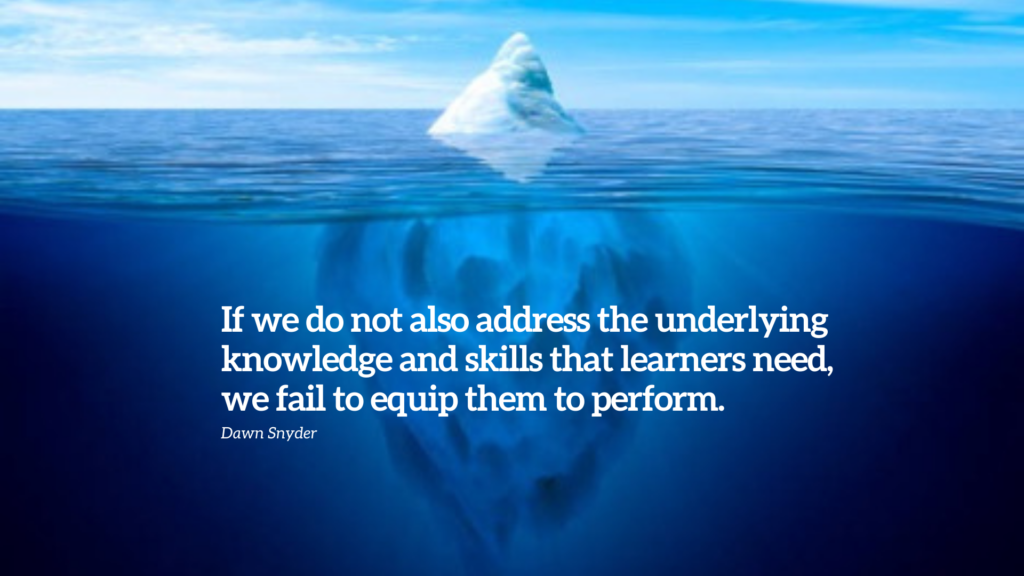There is no substitute for practice if you want to impact performance. We all know that practice makes proficient, but we often see practice that doesn’t prepare learners for performance. I call this the practice dilemma. It can be a challenge to get practice right. The rule of effective practice is relatively straightforward: Match practice […]
Tag Archives: Instructional Design
Is designing a curriculum the same as designing a course? Clients often ask this question as we approach a curriculum project. Here are some thoughts. We design a curriculum instead of a course when we want to take the learner on a longer, more complex journey, when there is a large and important gap between […]
If we do not also address the underlying knowledge and skills that learners need, we fail to equip them to perform.
I was working on a project with Apple Service Technicians when I was introduced to the concept of FRUs, or Field Replaceable Units. These are components in computers or other electrical devices that can be pulled out as units and replaced, either by the customer or by trained technicians, when they fail. The beauty of […]
“Dogfooding” is a concept from the product development community that refers to an organization using its own product to test it. This is a way of seeing how products work in real-world situations, developing empathy for the user experience, and working out bugs. “Dogfooding” is one (albeit incomplete) strategy consistent with design thinking, in which we observe and develop empathy with users while creating a solution to meet their needs.
As a performance consultant, it’s not enough to be proficient in performance improvement techniques. Whether we work inside or outside an organization, the ability to work with clients and other stakeholders is key to the success of the work that we do. The ability to do that in a remote environment increases the need for us to be intentional about our interventions and the role(s) that we play.
“[Design thinking is] an appealing addition to our set of interdisciplinary tools.”
Without the capacity to determine how to close performance gaps, talent development professionals often find themselves taking orders from decision-makers who don’t recognize the value of starting with the end in mind.”



